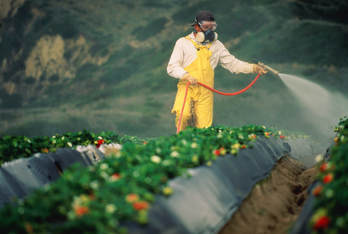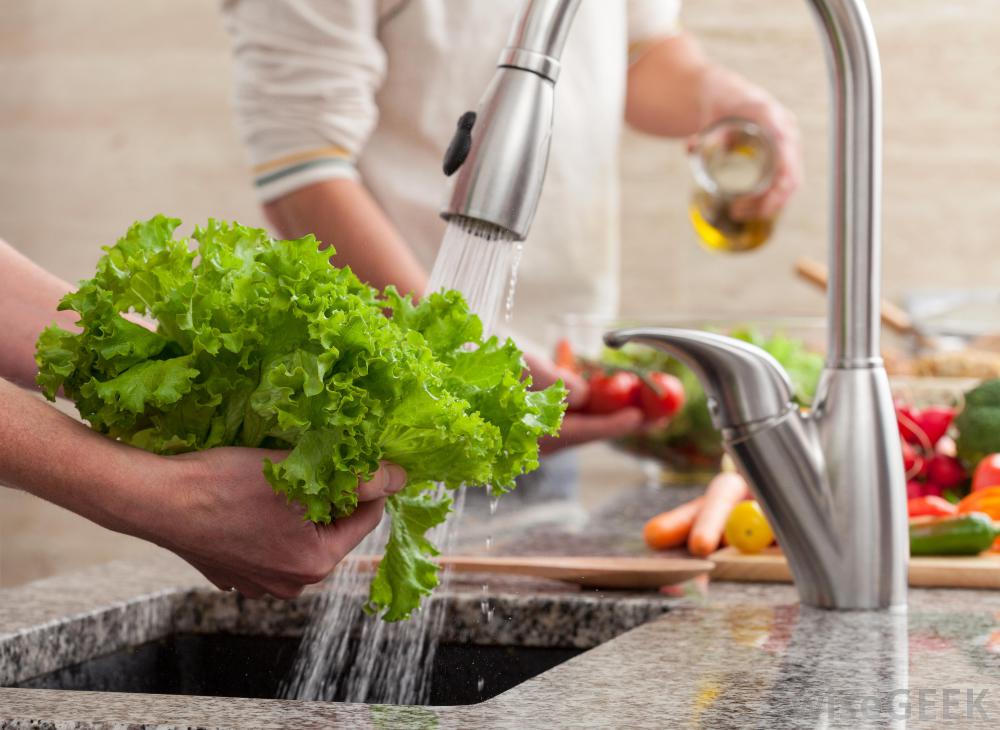|
Foods are classified as healthy or unhealthy. But what’s all this fuss about classifying produce as clean or dirty? This classification does help to avoid eating pesticide-laden produce that might put you at a greater risk of cancer and other diseases. Going organic has become a style statement, but with produce it actually does prove a point as certain organic produce can reduce the toxic consumption from produce by as much as 80%. Getting to know your dirty versus clean produce helps you avoid consuming a chemical cocktail. Also keep in mind that simply because a produce falls under the ‘dirty’ category, it is not a sin to eat it. Choosing organic or washing your produce thoroughly will help remove as much chemicals as possible. On the other hand, just because a produce falls under the ‘clean’ category it does not mean that it’s the best choice. Most of the cleanest fruits are tropical and this means, some people might not find them locally or they may be genetically modified (GMO), both of which don’t make them as clean and healthy for those people. Environmental Working Group (EWG), a non-profit environmental organization ranks pesticide contamination in 47 popular produce since the year 2004 and the list for 2018 is out: Top Dirty Produce
 Go Organic & Avoid Pesticide Attack Go Organic & Avoid Pesticide Attack Pesticide Bias If you look at the reason behind pesticides attacking certain produce greatly compared to the rest, it is evident that the outer layer of the sweet corn or pineapple acts as a defense mechanism against the attack of these unwanted chemicals compared to the chemical-susceptible strawberry or spinach. While washing the produce might remain as our No.1 option, the above list was prepared after the produce were washed in high-power pressure water systems that can never be a possibility in our households. If the pesticide ratio and numbers amount to so much after washing produce thoroughly, what are we eating? It’s high time we think upon world-class solutions for this prominent problem as fruits and veggies are an indispensable part of human life. Produce plays a vital role in any balanced diet without which we can’t aim for nourishing our body with the required healthy foods. Read more on eating a balanced diet at www.firsteatright.com. Try to buy organic produce as much as possible. Reality is that organic produce is quite expensive and many of us cannot afford it. Otherwise, try growing your essential produce in a small garden. It does not need a huge piece of land. You can use your terrace, grow fresh methi or spinach in container pots, try having your own community garden or come up with similar innovative ideas to grow healthy produce. Also, still wash any produce (despite knowing that pesticide residues do remain) thoroughly to reduce pesticide exposure. Children are of utmost concern here as pesticides might cause chronic health problems like neurological or behavioral development, asthma, birth defects and cancer too in young kids. Comments are closed.
|
AVOID FRAUD. EAT SMART.+91 7846 800 800
AuthorDietitian & Nutritionist Dr. Nafeesa Imteyaz. Archives
November 2022
Categories
All
Dr. Nafeesa's Blog @blogspot |
- Home
- Written Testimonials
- Consult
- Clinics
- Blogs
-
Diet & Nutrition
- Diabetes Reversal
- IVF IUI not needed for PCOS PCOD Infertility
-
Medical Nutrition
>
-
Disease & Conditions
>
- Infertility | PCOS
- Diabetes Mellitus
- Cholesterol
- Hypothyroid
- Kidney Problems
- Hypertension
- Cardiovascular Diseases
- Liver Diseases
- Gastro intestinal disorder
- Cancer
- Metabolic Disorders
- Orthopedic Disorders
- Eating Disorders
- Dietary Recall
- Weight Record Filled By Clients
- Online Payment Transaction Details
- Online Clients Weight Check Form
- Our Program Package Service Charges
- Weight Record 2017 Clients
- Measurements sent by Clients
- Terms & Conditions Of Payment
- Thanks. Your Form is Submitted
- Video Testimonials
- Lifestyle & Wellness
- Lifestyle & Wellness Blog
- Allergy & Intolerance
- Weight Loss / Gain
- Weight Loss / Slimming Blog
-
Disease & Conditions
>
- Life Cycle Nutrition >
- Sports Nutrition >
- Integrity in Nutrition
- Knowledge Centre
© COPYRIGHT 2022. ALL RIGHTS RESERVED. FRST HEALTHCARE PVT LTD.
Dr. Nafeesa Imteyaz of First Eat Right clinic, is the Best Dietitian Nutritionist in Bangalore. Best Dietitian Nutritionist in Pune. Best Dietitian Nutritionist in Hyderabad. Best Dietitian Nutritionist in Chennai. Best Dietitian Nutritionist in Mumbai. Best Dietitian Nutritionist in Delhi. Best Dietitian Nutritionist in Kolkata.


